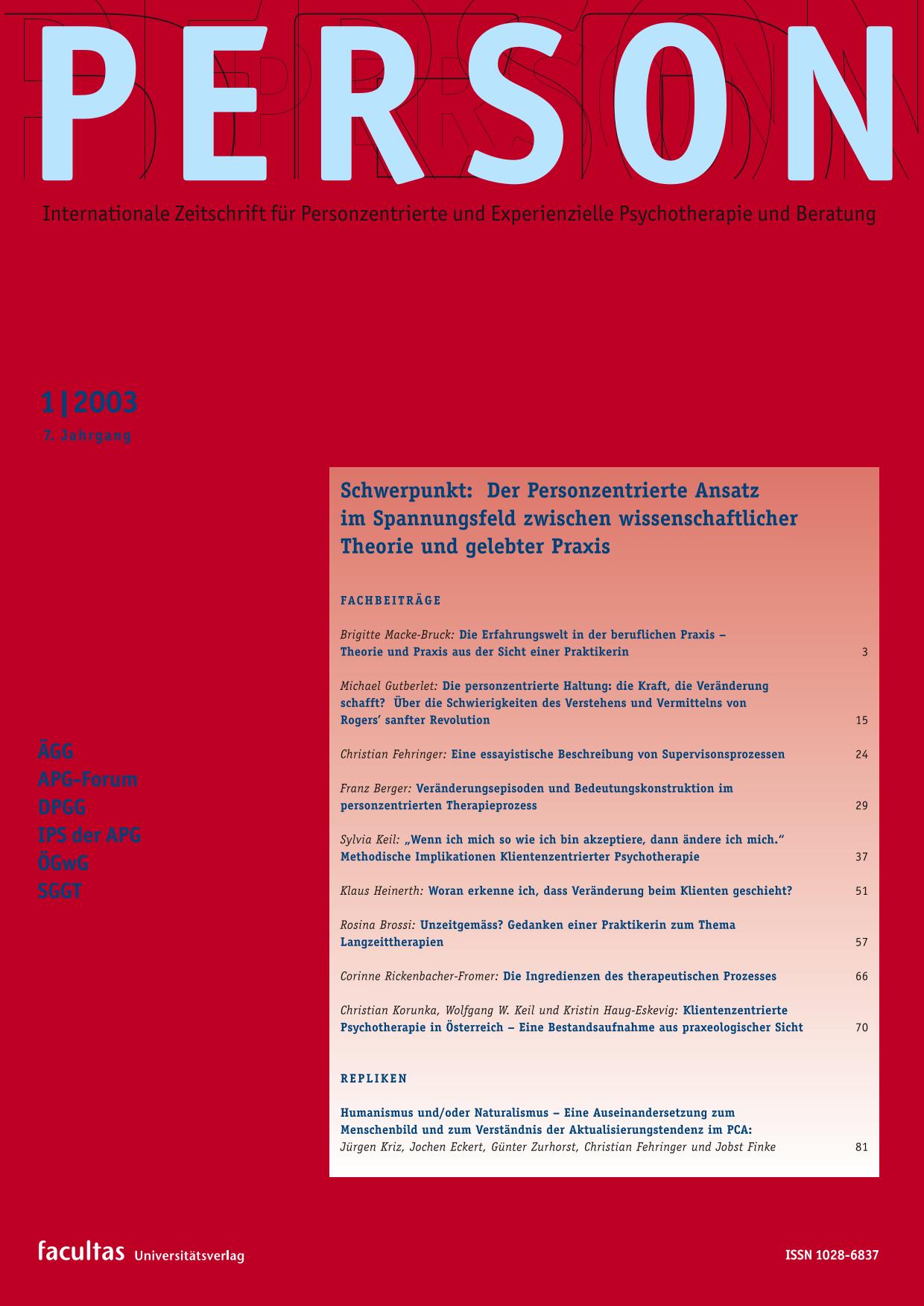Die personzentrierte Haltung: die Kraft, die Veränderung schafft? Über die Schwierigkeiten des Verstehens und Vermittelns von Rogers’ sanfter Revolution
Main Article Content
Article Sidebar
Abstract
Is the person-centred attitude the power that leads to change? On the difficulties of understanding and communicating Rogers’ soft revolution. In training and in professional discussions we continue to ask a question which is very meaningful for professional practice: Is the person-centred attitude, as proposed and examined by Rogers, suficient for a constructive change of personality or is it necessary to expand the approach.
In this context, the author discusses the following propositions:
• Rogers’ concept of the therapeutic attitude encounters scepticism and rejection because it contradicts the regular concept of science and trainingand it is unconventional in the sense that to be understood, it needs to be communicated and taught in ways that are closely related to experience.
• The person-centred attitude is the decisive and suficient agent for change and healing. This, however, does not exclude the occasional applicationof elaborate techniques so long as the inner frame of reference of the person — and not the theory or the technique — remains the focus of the therapist’s attention and so long as the clients themselves can decide which steps they need to take. The author describes the basis of this approach, clariies its implementation and points out the risks.
How to Cite
Downloads
Article Details
Suficient conditions for psychotherapy, person-centred attitude, integration of other therapeutic methods, training

